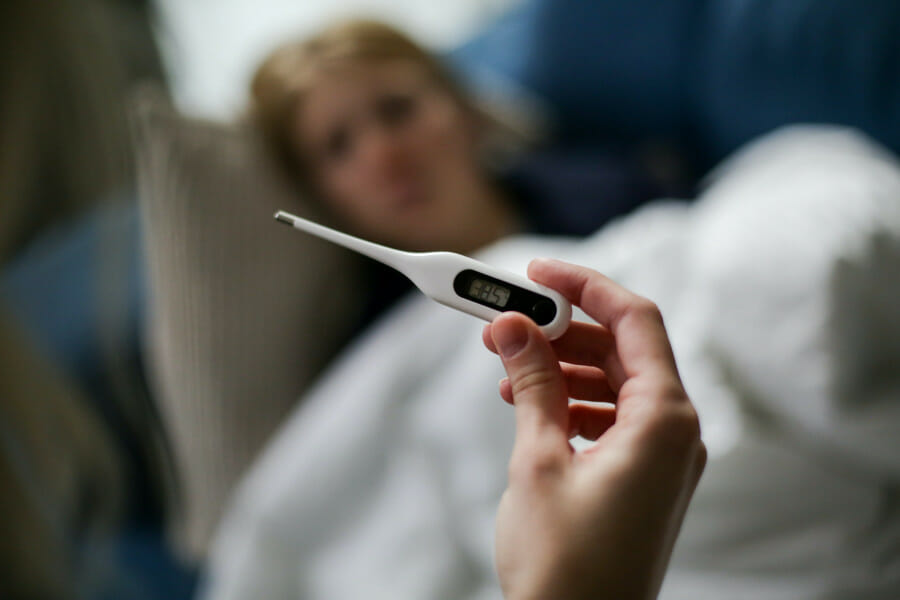The Ultimate Solution for Alleviating Hay Fever Symptoms While Pregnant
Spring and Summer bring their own beauty, but for many, they also usher in the nuisance of hay fever, affecting millions. The impact of this seasonal allergy can vary from mild to incredibly severe. Pregnant women, in particular, may experience more intense hay fever symptoms due to their weakened immune systems, leading them to seek relief.
Fortunately, there are several over-the-counter remedies available to address hay fever symptoms. However, not all of these treatments are safe for pregnant women. This article discusses the causes, symptoms, and safest approaches to combating hay fever during pregnancy.
What Triggers Hay Fever?
Hay fever, also known as allergic rhinitis, manifests as cold-like symptoms such as a runny nose, congestion, itchy eyes, and sneezing.
The key to managing the unpleasant symptoms of hay fever lies in identifying and avoiding its triggers while employing appropriate treatments. Common hay fever triggers include:
- Seasonal Allergens: Tree pollen, grass pollen, and Ragweed pollen, prevalent in early spring, late spring/summer, and fall, respectively.
- Non-Seasonal Allergens: Persistent allergens like dust mites, pet dander, and cockroaches, coupled with spores from indoor and outdoor fungi and molds, can also induce hay fever, with some variations throughout the year.
Symptoms of Hay Fever During Pregnancy
Hay fever during pregnancy is a form of pregnancy rhinitis. While not life-threatening, many expectant mothers are familiar with the discomfort it brings. Symptoms like nasal congestion, post-nasal drip, itchy/watery eyes, and a congested nose can be quite bothersome.
It’s common for pregnant women to mistake hay fever symptoms for regular colds or nasal congestion typical in the second trimester, caused by hormonal changes. However, hay fever symptoms manifest distinctly due to elevated hormone levels affecting blood flow, leading to nasal swelling and mucus membrane softening.
Unlike hormonal fluctuations or viral infections, hay fever is not contagious and can be identified by symptoms such as:
- Itchy, runny, or blocked nose.
- Watery and itchy eyes.
- Difficulty sleeping due to nasal congestion.
If you experience breathing difficulties or are uncertain about your symptoms, prompt medical consultation is essential.
Tips for Managing Hay Fever During Pregnancy
There’s no universal solution for managing hay fever during pregnancy, but here are some strategies to help combat this allergy.
Use of Medications
Opting for over-the-counter hay fever medications is acceptable but consult your doctor first, as not all are suitable for pregnancy and may impact fetal development.
Nasal sprays containing corticosteroids or mast cell stabilizers, along with eye drops, can provide relief. Antihistamines can also be effective, but medical guidance is crucial due to potential side effects like drowsiness.
Certain antihistamines may enter the bloodstream causing drowsiness, making them unsuitable during pregnancy; always use under medical supervision.
Monitor Your Outdoor Exposure
Minimize contact with known allergens like dust, pollen, and pet dander. Applying petroleum jelly around your nostrils can prevent pollen inhalation, and wearing sunglasses outdoors can shield your eyes from pollen.
Enhance Hygiene Practices
To mitigate hay fever risks, shower before bedtime to remove pollen from your skin and hair. Additionally, ensure bed linens are free of pollen by using a dryer or indoor drying to prevent pollen adherence.
Include Remedies in Your Diet
Boost your immunity against hay fever by consuming a daily spoonful of honey. Nasal rinses with a saline solution can also aid in managing symptoms. For safety, consider purchasing saline powder from a pharmacy rather than preparing the solution yourself to prevent nasal irritation.
Conclusion
Hay fever, though not life-threatening, can be uncomfortable during pregnancy. Taking precautions before, during, and after spring and summer if you are a hay fever sufferer is advisable. Remember, hay fever is not solely triggered by seasonal allergens, so stay informed about non-seasonal culprits too.
!function(f,b,e,v,n,t,s){if(f.fbq)return;n=f.fbq=function(){n.callMethod?
n.callMethod.apply(n,arguments):n.queue.push(arguments)};if(!f._fbq)f._fbq=n;
n.push=n;n.loaded=!0;n.version=’2.0′;n.queue=[];t=b.createElement(e);t.async=!0;
t.src=v;s=b.getElementsByTagName(e)[0];s.parentNode.insertBefore(t,s)}(window,
document,’script’,’//connect.facebook.net/en_US/fbevents.js’);
fbq(‘init’, ‘1659360370986360’);
fbq(‘track’, “PageView”);
Featured Image by cottonbro via Pexels

















